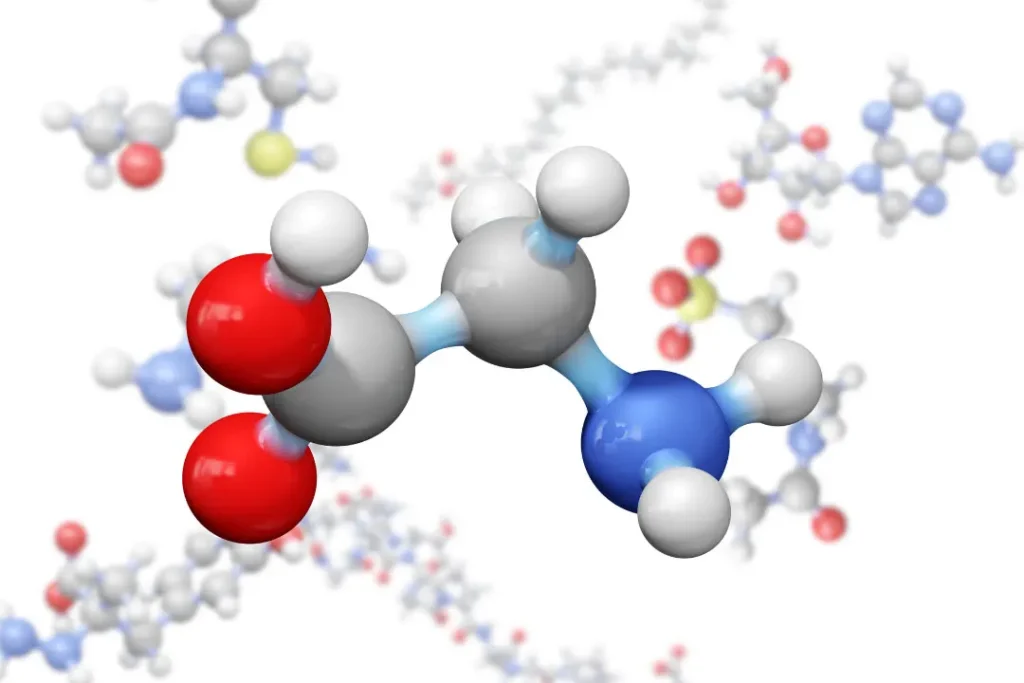The bioactive substances known as casein peptides are generated from the casein protein family, which makes up around 80% of the proteins in cow’s milk. These peptides are produced when casein is broken down enzymatically, either naturally during digestion or as a result of food processing. Nutritional research has lately focused on the study of the health advantages connected to these peptides. The nature of casein peptides, their health advantages, the best dose, any potential negative effects, any possible drug interactions, and responsible usage are all covered in this article.
You May Also Like:
The Nature of Casein Peptides
Chemically speaking, casein hydrolysis produces casein peptides, which are relatively short sequences of amino acids. Depending on their particular amino acid makeup, many peptide sequences exhibit various biological actions, ranging from antibacterial to immunomodulatory properties. Alpha, beta, and kappa caseins are the three main forms of casein found in milk; each produces a unique peptide with a specific biological activity.

Health Benefits of Casein Peptides
Casein peptides have a wide range of positive health effects that influence many facets of human health. Several of these advantages include:
- Anti-hypertensive Effects: Some peptides made from casein, especially those made from alpha and beta-casein, have shown anti-hypertensive effects.
- Immunomodulatory Properties: Casein peptides have been discovered to influence immunological response, enhancing the body’s immune response and perhaps lowering the risk of illness.
- Antioxidant Activity: By scavenging damaging free radicals, certain casein peptides exhibit antioxidant activity, which lowers oxidative stress in the body.
- Opioid-Like actions: Beta-casomorphins, a casein peptide, display opioid-like actions that may affect mood and pain perception.
Chemistry of Casein Peptides
Casein peptides are formed when casein proteins are hydrolyzed by enzymes. Alpha, beta, and kappa caseins combine to form the complex molecules known as casein proteins, which are mostly present in milk. Because each variety of casein has a different ratio of amino acids, when it is hydrolyzed, it produces a particular set of peptides. These peptides are bioactive substances that have a variety of physiological effects. They are produced either in the digestive system during digestion or food processing.

Physiological Mechanism of Action of Casein Peptides
Casein peptides’ physiological effects are mostly related to their interactions with different cellular and enzymatic systems, which rely on precise amino acid sequences.
- Anti-hypertensive Effects: By blocking the angiotensin-converting enzyme (ACE), certain casein peptides reduce blood pressure. This is because the renin-angiotensin system, which controls blood pressure and fluid balance, depends on the enzyme ACE. These peptides aid in blood vessel relaxation and lower blood pressure by blocking ACE.
- Immunomodulatory Qualities: Some casein peptides have immunomodulatory properties, perhaps as a result of their interactions with the gastrointestinal immune system. They could increase the body’s synthesis of immunological mediators including cytokines and immunoglobulins, which might improve the immune response.
- Casein Peptide Antioxidant Activity: By scavenging damaging free radicals, casein peptides act as antioxidants and lower oxidative stress. In this method, the unstable free radicals get electron donations from the peptides, making them innocuous and averting cellular damage.
- Opioid-Like Effects: Some casein peptides, especially beta-casomorphins, bind to opioid receptors in the brain and have effects that are similar to those of opioids. These effects have the potential to relieve pain and affect mood, but further study is required to completely understand these effects’ processes.
In conclusion, since casein peptides have a variety of peptide compositions, their physiological effects are complex. Future studies will continue to elucidate the entire range of their physiological impacts and possible therapeutic applications. They may have positive effects on cardiovascular, immunological, and neurological health.

Optimal Dosage of Casein Peptides
The ideal dose of casein peptides may vary depending on your age, general health state, and particular health objectives, as is the case with other dietary supplements. The normal dosage for casein peptides used for anti-hypertensive benefits is between 25 to 50 mg per day. Supplements containing casein peptides may sometimes cause modest adverse effects, such as stomach pain. If you are sensitive to milk or milk products, you should stay away from this supplement.
More study is necessary to properly understand this possible side effect, however, it is vital to keep in mind that the opioid-like properties from certain casein peptides might have a sedative impact.
Side Effects of Casein Peptides
Casein peptide ingestion is usually regarded as safe for the majority of people, although some people may have negative effects, especially if they consume too much in a single dose or have underlying allergies.
- Digestive Discomfort: Overconsuming casein peptides may cause digestive discomfort, such as bloating, gas, or stomach distress just like many other nutritional supplements.
- Sensitive responses: Since casein peptides are made from milk proteins, those who are known to be sensitive to milk and dairy products may have adverse responses. Allergic responses include stomach issues, skin symptoms like hives, swelling, and itching, or, in rare circumstances, more serious events like anaphylaxis.
- Possibility of Sedative Properties: Beta-casomorphins, for instance, is casein peptides that may have opioid-like properties and may result in sedation. Although this side effect has not been extensively documented, it is a possible subject for more investigation and studies.
It is advised to begin with minimal amounts and watch for any negative effects. Before incorporating casein peptides into your diet, you speak with a healthcare provider if you have a known dairy allergy or are predisposed to specific medical issues.

Potential Substance Interactions with Casein Peptides
Certain drugs, especially those used to control blood pressure, may interact with casein peptides. They may intensify the effects of these drugs, causing extremely low blood pressure, given their possible anti-hypertensive effects. Before beginning a casein peptide supplement program, you must speak with a doctor if you are using any blood pressure medication.
Responsible Use of Casein Peptides
Understanding one’s specific health requirements, any allergies, and any drugs presently being used is necessary for the responsible usage of casein peptides. It is advised to speak with a healthcare professional before beginning any new supplement regimen.
Although the science behind casein peptides is promising, it is still in its infancy. As a result, users should approach these supplements knowing the current research’s limitations. Additionally, people should try to maintain a balanced diet and healthy lifestyle, since supplements are not meant to substitute a diverse diet or act as a stand-alone to treat or prevent any illness.
With potential advantages in areas including blood pressure management, immunological function, and antioxidant activity, casein peptides constitute a promising field of nutritional research. Understanding a supplement’s composition, possible adverse effects and recommended usage are the keys to gaining its advantages. As our knowledge of casein peptides grows, so will our capacity to take advantage of their potential benefits for human health.

Casein Peptides:
Conclusion
Casein peptides can be a beneficial choice for optimizing your health and well-being. Casein peptides are derived from milk protein and they can be broken down naturally after consumption. Casein peptides have shown promising results in anti-hypertensive effects and immunomodulatory properties. Aside from this, casein peptides also exert opioid-like actions that can relieve pain. Before incorporating casein peptides into your diet, it is important to get personalized advice from a healthcare professional to determine the appropriate dosage. You have to choose high-quality casein peptides products from reputable sellers.
References:
- “Health Benefits of Casein Peptides.” Retrieved from: https://www.healthline.com/nutrition/casein-protein-is-highly-underrated
- “Immunomodulating Effects of Casein-Derived Peptides QEPVL and QEPV on Lymphocytes In Vitro and In Vivo.” Retrieved from: https://pubmed.ncbi.nlm.nih.gov/24983024/
- “Casein Peptide Release and Passage to The Blood in Humans During Digestion of Milk or Yogurt.” Retrieved from: https://www.sciencedirect.com/science/article/abs/pii/S0300908498800229
Important Note: The information contained in this article is for general informational purposes only, and should not be construed as health or medical advice, nor is it intended to diagnose, prevent, treat, or cure any disease or health condition. Before embarking on any diet, fitness regimen, or program of nutritional supplementation, it is advisable to consult your healthcare professional in order to determine its safety and probable efficacy in terms of your individual state of health.
Regarding Nutritional Supplements Or Other Non-Prescription Health Products: If any nutritional supplements or other non-prescription health products are mentioned in the foregoing article, any claims or statements made about them have not been evaluated by the U.S. Food and Drug Administration, and such nutritional supplements or other health products are not intended to diagnose, treat, cure, or prevent any disease.


